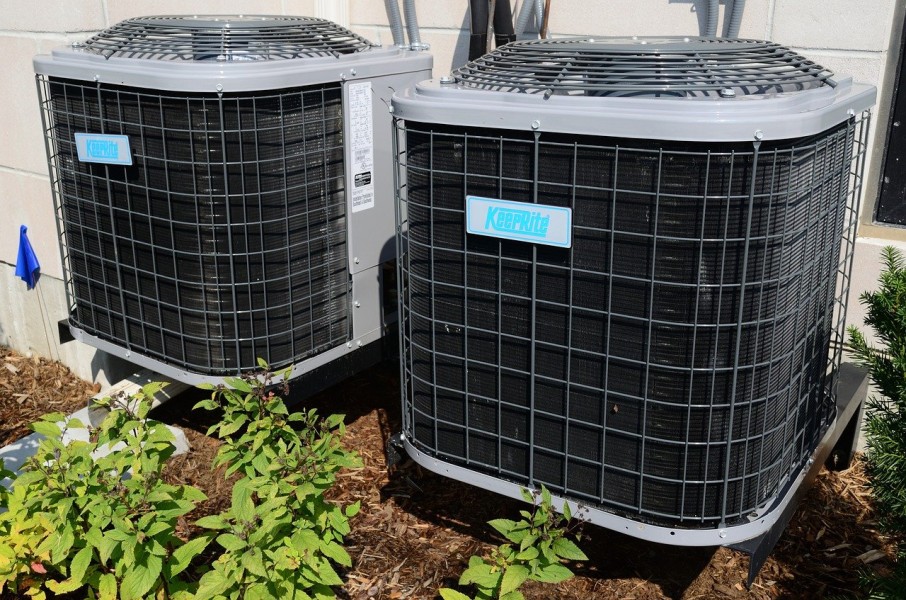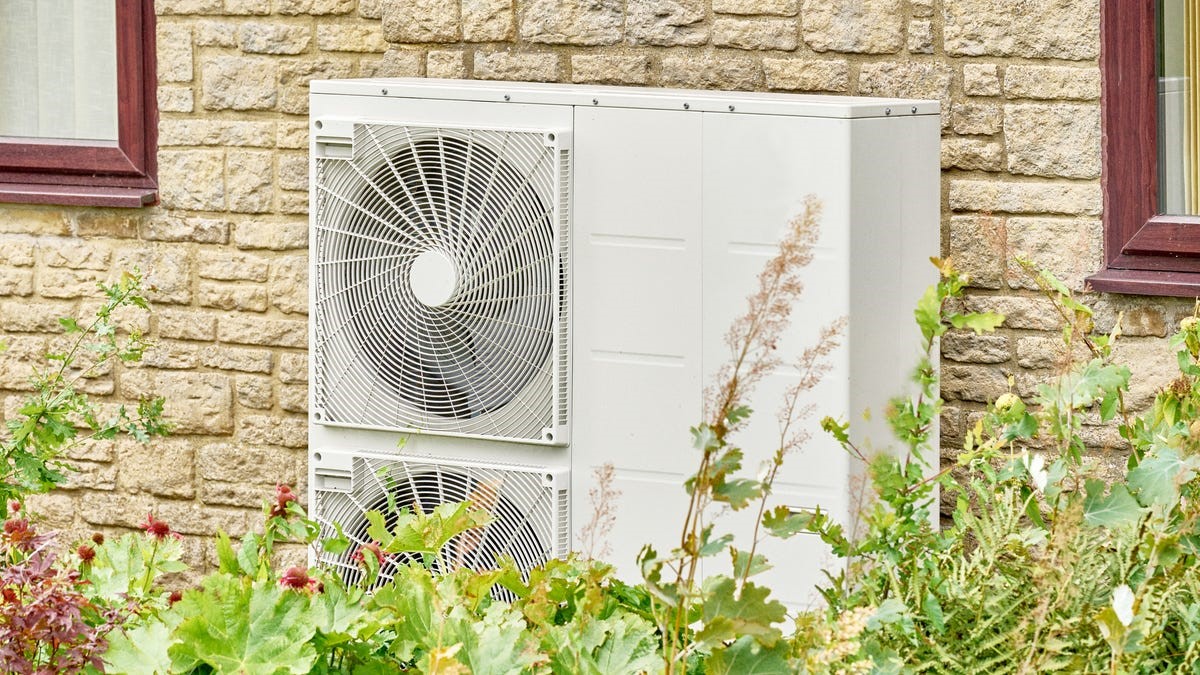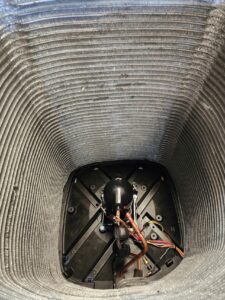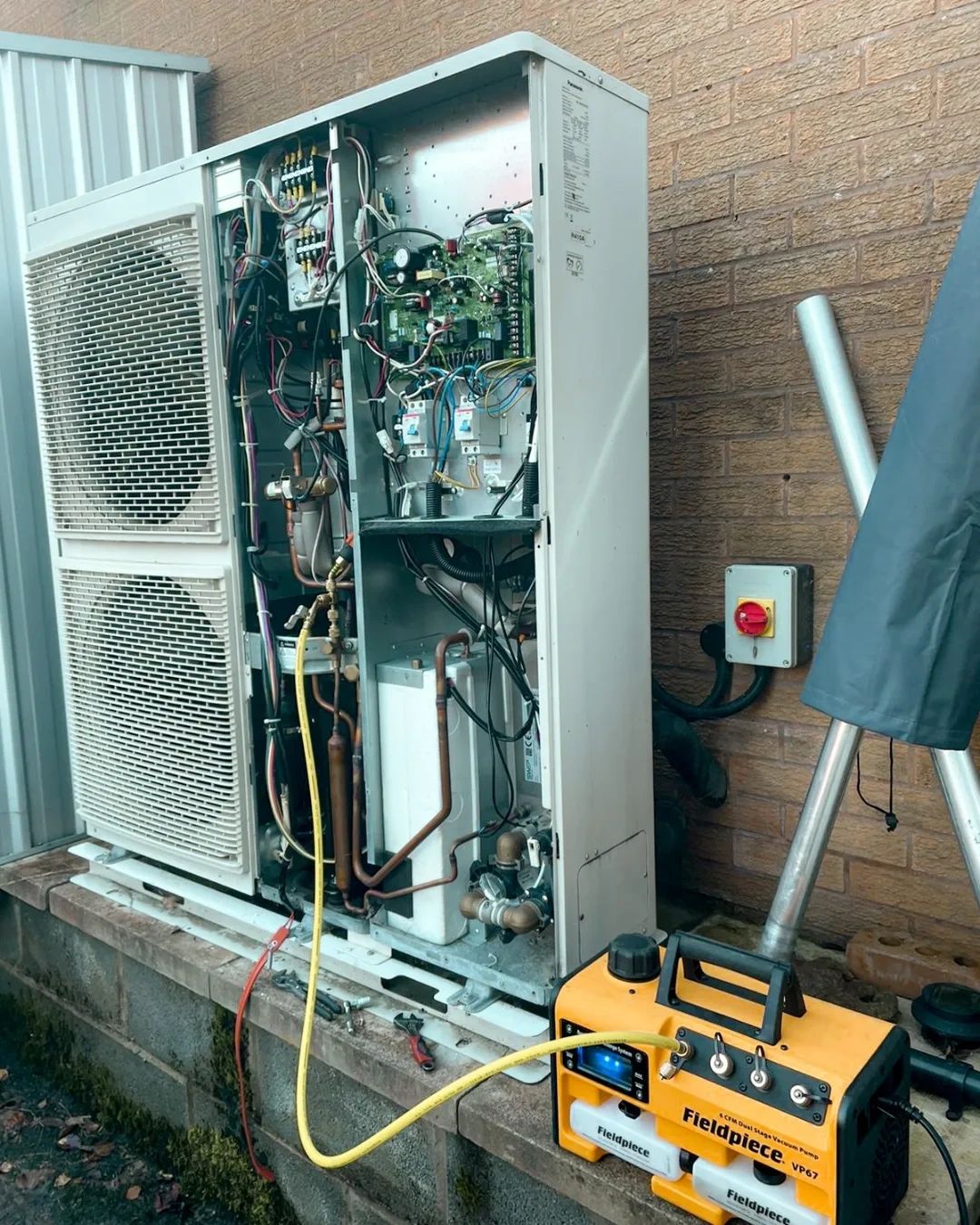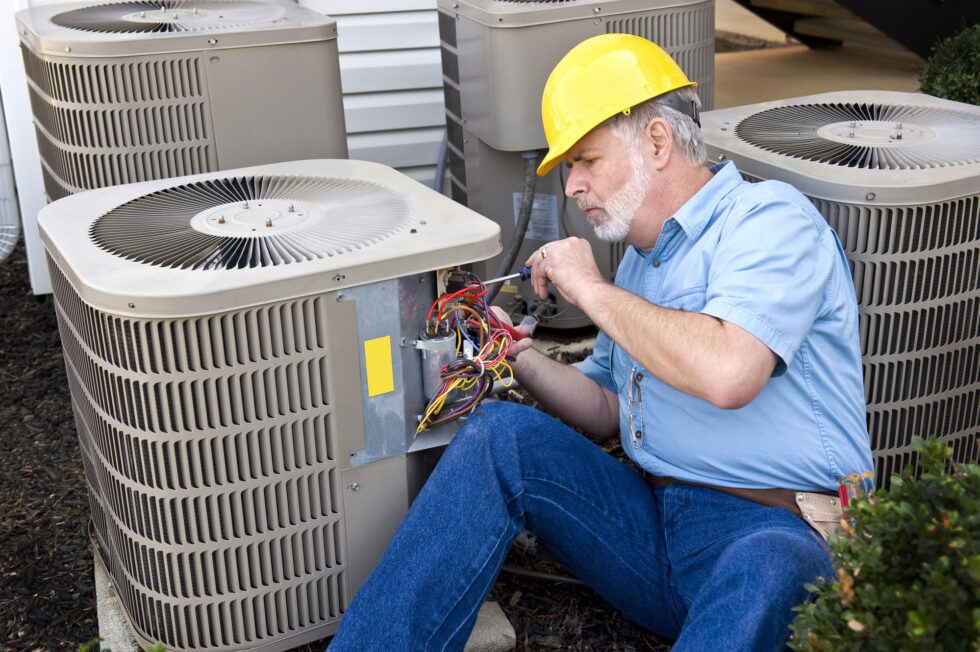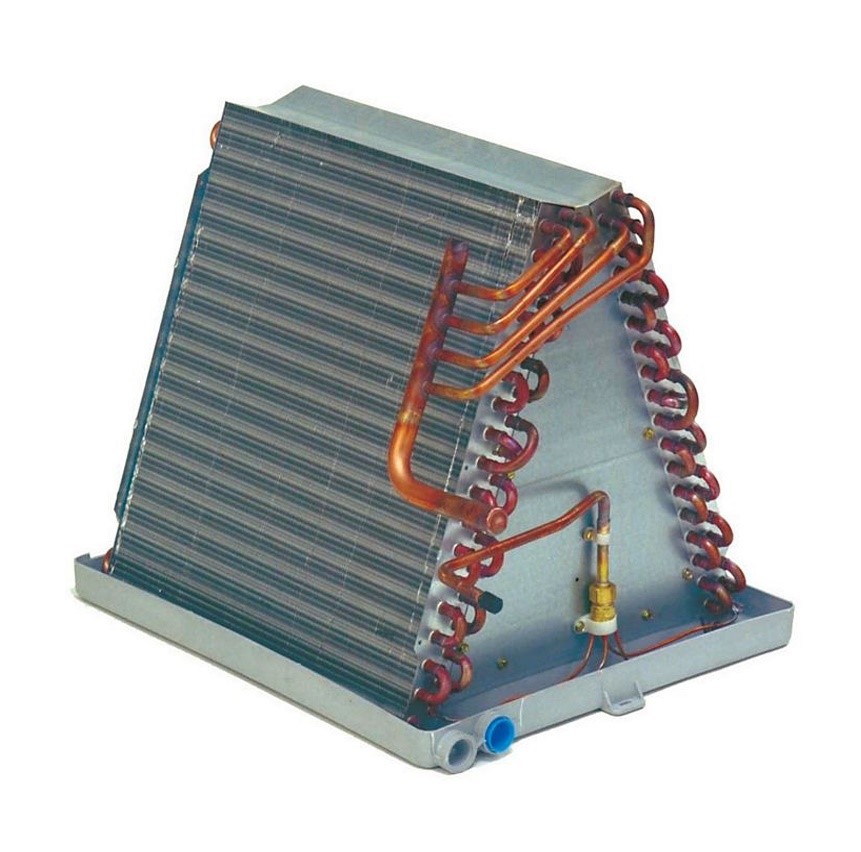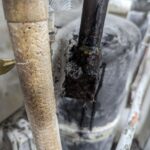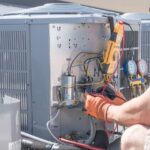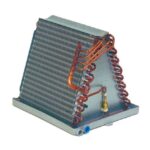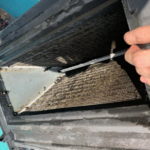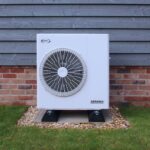What are the similarities between a heat pump and an air conditioner?
- Core Cooling Mechanism:
Both heat pumps and air conditioners operate similarly in cooling homes. They utilize compressed refrigerant and coils in the air handler to extract heat from indoors as air passes over the coils. This extracted heat is then moved outdoors, effectively cooling the interior of the house.
- Heat Removal Process:
Contrary to common belief, air conditioners and heat pumps don’t produce cold air directly. Instead, they function by eliminating heat energy from the home, expelling it outside. Both systems pump heat out when operating in cooling mode, effectively achieving a cooler indoor environment.
- Indistinguishable Operation:
From an operational standpoint, heat pumps and air conditioners exhibit striking similarities. Their outdoor units closely resemble each other, making it challenging for an average person to differentiate between the two. In terms of cooling, they function comparably, sharing similar efficiency, operation, and energy costs.
- Cooling Efficiency:
The shared goal of both systems is to efficiently remove heat from indoor spaces. Despite minor technical distinctions, their primary function remains consistent—transferring heat from the interior to the exterior to cool the home effectively.
Conclusion: In the realm of home cooling, both heat pumps and air conditioners operate on the same fundamental principle of extracting heat from within a residence and expelling it outside, resulting in a cooler indoor environment. While nuanced differences exist between the two systems, their core function of cooling remains markedly similar.
What is a heat pump?
A heat pump is an HVAC device that uses a refrigeration cycle to transfer heat between two areas, effectively providing both heating and cooling to a building, central to its operation is a reversing valve, which allows the heat pump to switch between heating and cooling modes. In heating mode, the heat pump extracts heat from outside sources like air or ground and transfers it indoors. In cooling mode, this process is reversed: the heat pump removes heat from the indoor environment and releases it outside. This versatility, aided by the reversing valve, makes heat pumps a highly efficient solution for year-round climate control in various settings.
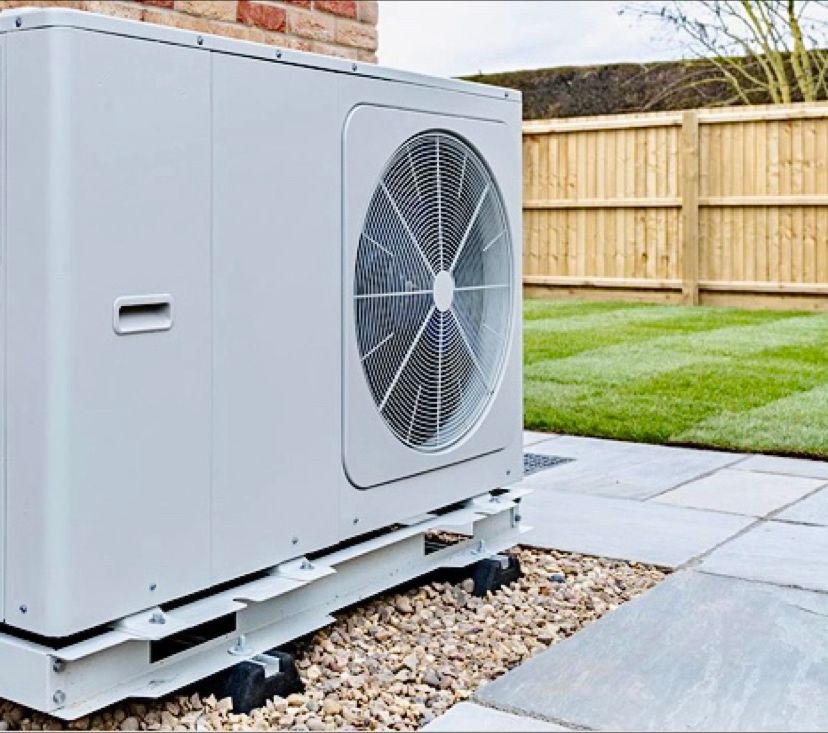
There are three main types of heat pumps. Air-source heat pumps, the most widespread, use outdoor air. Geothermal heat pumps draw heat from the ground, and water-source heat pumps rely on a nearby water source like a pond for their heat exchange.Top of Form
What is Air Conditioning?
Air conditioning is a system designed to cool indoor air, enhancing comfort in buildings and vehicles. It works by drawing warm air inside a space over a set of cold coils filled with refrigerant. This refrigerant absorbs heat from the air, cooling it down. The now-warm refrigerant is then pumped outside to a compressor and condenser, where it releases the absorbed heat and cools down again. This cycle continues, constantly pulling warm air from the room, cooling it, and recirculating the chilled air back into the space, effectively reducing the indoor temperature and humidity.
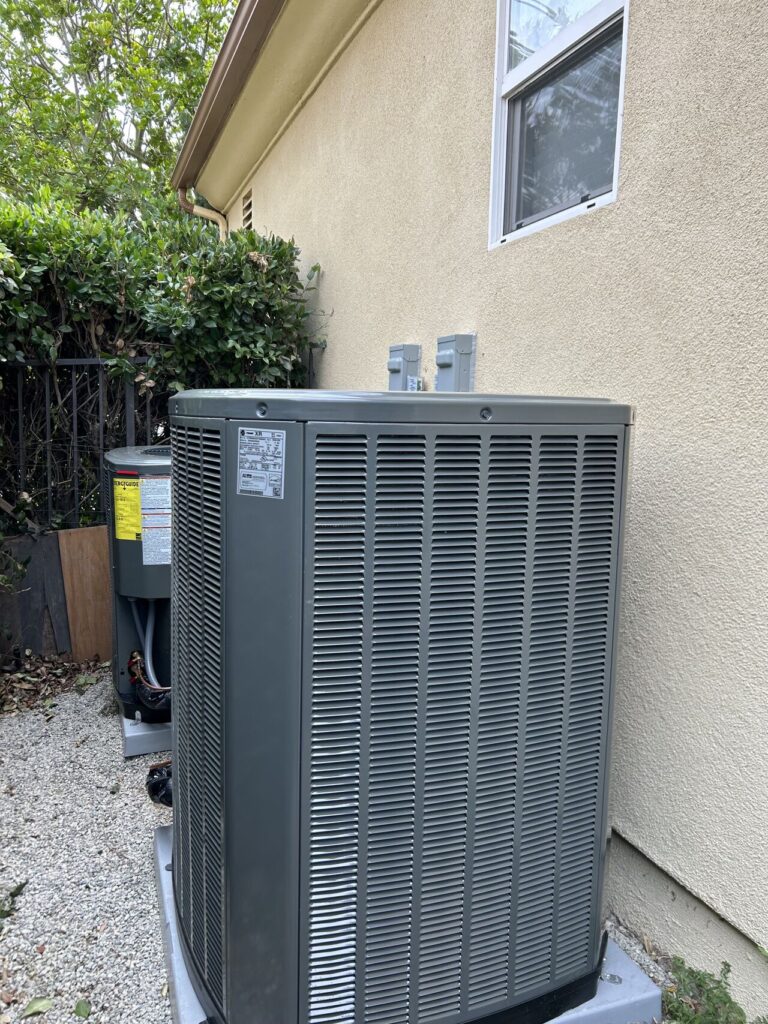
Types of air conditioning
Air conditioning types include central air systems, which cool entire buildings; window units for single rooms; portable air conditioners for flexible use; ductless mini-splits for individual room control; and evaporative coolers, ideal for dry climates.
Frequently asked questions
Does a heat pump cool as well as an air conditioner?
Pros and cons of heat pump vs ac
heat pump vs air conditioning, differences summarized in a table
| Feature | Heat Pump | Air Conditioner |
|---|---|---|
| Cooling Function | Similar to air conditioners, they extract heat from inside and release it outside. | Operate by extracting heat from inside and releasing it outdoors, using a refrigeration cycle. |
| Heating Function | Can switch to heating mode using a reversing valve, drawing heat from outside air to warm the interior. | Lack a reversing valve and cannot provide heating; often paired with a furnace in colder climates. |
| Efficiency in Cold Weather | Efficiency decreases below freezing; may include auxiliary electric heater, but less energy-efficient. Hybrid systems combine with a furnace for better efficiency. | Not applicable, as they do not provide heating. |
| Energy Efficiency in Moderate Cold | Efficient in moderately cold weather; less efficient and costly in freezing temperatures. | Paired with furnaces; less energy-efficient in heating compared to heat pumps. |
| Hybrid Heat System | Heat pump paired with a furnace for enhanced efficiency in colder climates. | Not applicable, as they are already combined with furnaces for heating. |
| Cooling Efficiency | Better cooling efficiency than air conditioners, using less electricity. High SEER2 ratings indicate greater efficiency. | High SEER2 ratings in cooling mode, indicating efficient performance. |
| Heating Efficiency Measure | Heating efficiency measured by HSPF2; higher values mean better efficiency. | Do not provide heating, so HSPF2 measurement is not applicable. |
| Energy Savings and Costs | Can reduce electricity use for heating up to 50%; cost savings decrease when auxiliary heat is used. | Efficiency primarily in cooling; paired with furnaces for heating, which affects overall energy costs. |
| Energy Star and Cost Considerations | Available in Energy Star-rated models, offering long-term savings despite higher upfront costs. | Also available in Energy Star-rated models, indicating efficient performance. |
| Lifespan Considerations | Year-round operation for heating and cooling may lead to a shorter lifespan. | Typically longer lifespan (15-20 years) as primarily used in warmer months only. |
| Location Considerations: Moderate Climates | Excel in efficiency and have an extended lifespan. | Efficient in maintaining cooler temperatures; may work harder in extreme heat. |
| Location Considerations: Cold Temperatures | Less efficient, requiring auxiliary heat sources. Energy efficiency decreases in freezing temperatures. | Not suitable as they lack heating capabilities; require a separate heating system in colder climates. |
| Impact on Operating Costs and Longevity | More cost-effective in moderate climates; extended lifespan in mild climates. | Efficient in warm climates, but extreme temperatures may increase operating costs and affect lifespan. |
| Conclusion for HVAC System Choice | Ideal for moderate climates with both heating and cooling needs. | Best suited for warmer regions with milder winters, especially when paired with a furnace. |
This table provides a comprehensive comparison between heat pumps and air conditioners, highlighting their operational differences, energy efficiency, lifespan considerations, and suitability based on climate. It helps in understanding the specific advantages and limitations of each system, aiding in making an informed decision for HVAC needs. These differences and limitations of the heat pump and air conditioner are further explain below in detail
Heat Pump vs Air Conditioning: Operational Differences
Cooling Function
Both heat pumps and air conditioners operate similarly in cooling mode. They extract heat from inside a building and release it outdoors, effectively cooling the indoor space. This process involves a refrigeration cycle where refrigerant absorbs indoor heat and then expels it outside.
Heating Function, The key difference lies in heating capabilities.
- Heat Pumps: Equipped with a reversing valve, heat pumps can switch their operation to heating mode. In this mode, they extract heat from the outside air—even in cold conditions—and transfer it indoors. This dual functionality allows heat pumps to both cool and heat a building.
- Air Conditioners: Air conditioners lack this reversing valve and thus cannot provide heating. They are usually paired with a furnace in colder climates to offer a complete heating and cooling solution.
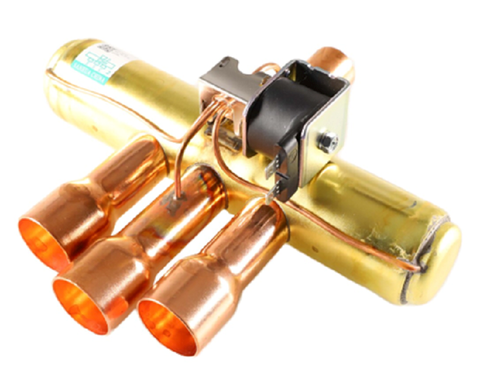
Efficiency in Cold Weather
- Heat Pumps: While effective in mild to moderately cold temperatures, their efficiency declines as temperatures drop below freezing. To counter this, many heat pumps include an auxiliary electric heater for supplemental heat. However, this is less energy-efficient.
- Hybrid Systems: To optimize efficiency, some systems combine a heat pump with a furnace. This Hybrid Heat® technology uses the heat pump for general heating but automatically switches to the furnace in colder conditions, ensuring efficient and consistent indoor heating.
In summary, while air conditioners and heat pumps are similar in cooling, heat pumps additionally offer heating capabilities, making them versatile for year-round climate control. However, in very cold temperatures, the efficiency of a heat pump can decrease, often necessitating supplementary heating solutions.
Heat Pump vs. Air Conditioner: Energy Efficiency
Heating Efficiency in Moderately Cold Temperatures
- Heat Pumps: In moderately cold weather, heat pumps efficiently provide heating using electricity, often costing less than systems using more expensive fuels. However, as temperatures drop below freezing, the heat pump’s efficiency decreases, resulting in higher electric bills.
- Air Conditioners: Air conditioners do not provide heating but are commonly paired with furnaces for colder months, making them less energy-efficient in heating compared to heat pumps.
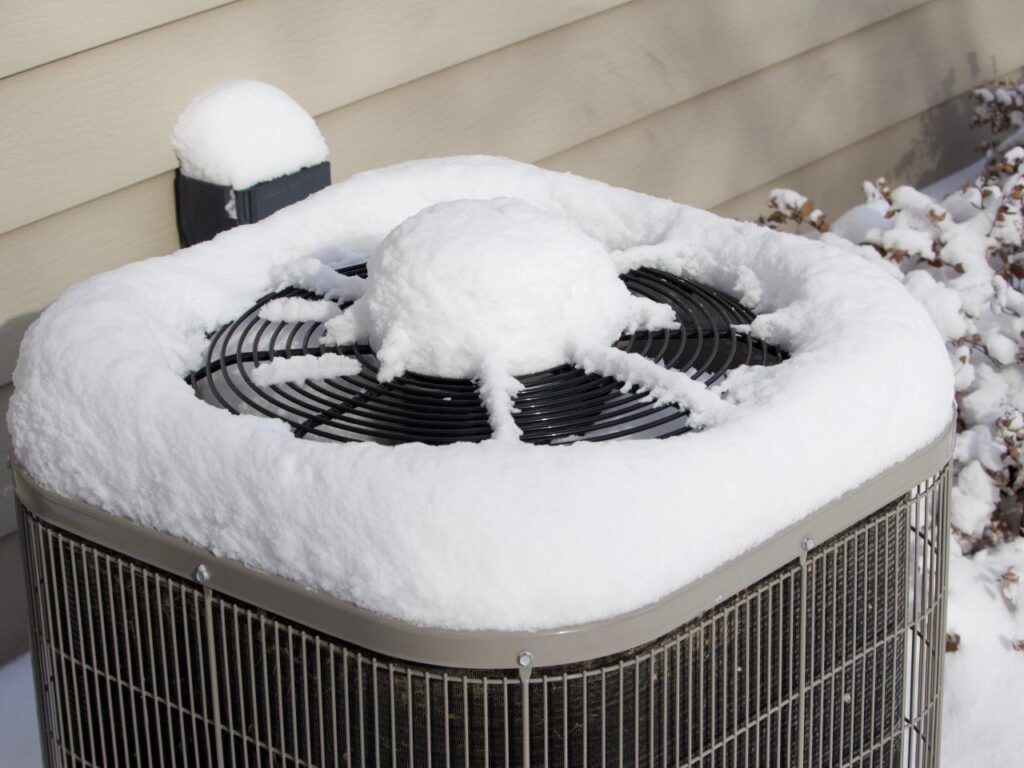
Hybrid Heat System for Improved Efficiency
- Hybrid Systems: To enhance efficiency in colder climates, a heat pump can be paired with a furnace, creating a Hybrid Heat system. This addresses the efficiency decline of a heat pump in freezing temperatures but may lead to a higher initial cost compared to a standard air conditioner and furnace pairing.
Cooling Efficiency
- Heat Pumps: Heat pumps offer better cooling efficiency than air conditioners as they use less electricity. They excel at removing humidity and heat from the air, providing energy-efficient cooling during warm months.
- Air Conditioners: Both heat pumps and air conditioners, when in cooling mode, come with high SEER2 ratings (Seasonal Energy Efficiency Ratio), offering a standardized measure of efficiency. Higher SEER2 ratings indicate greater cooling efficiency.
Heating Efficiency Measure
- Heat Pumps: Heat pump efficiency in heating mode is measured by HSPF2 (Heating Seasonal Performance Factor). Higher HSPF2 values signify better efficiency. The suitability of a heat pump for efficient heating depends on the local climate.
Energy Savings and Cost Factors
- Heat Pumps: According to the U.S. Department of Energy, air-source heat pumps can significantly reduce electricity use for heating, offering up to a 50% reduction compared to standalone heating systems. However, cost savings may decrease when auxiliary heat is required in extremely cold conditions.
Energy Star and Cost Considerations
- Both Systems: Heat pumps and air conditioning systems are available in Energy Star-rated models, denoting better efficiency. While energy-efficient units have higher upfront costs, they deliver long-term energy savings, making them a cost-effective choice over time.
In conclusion, the energy efficiency of heat pumps and air conditioners depends on factors such as climate, temperature extremes, and local energy costs. Heat pumps excel in moderately cold climates, providing efficient heating and cooling, while air conditioners may be more suitable in regions with milder winters when paired with a furnace. Energy Star-rated units offer a balance between efficiency and long-term cost savings.
Heat Pump vs. Air Conditioner: Lifespan Considerations
Usage Frequency and Longevity
- Heat Pumps: Heat pumps operate year-round for both heating and cooling, potentially leading to a shorter lifespan compared to air conditioners. However, their efficiency in delivering cost-effective heating during milder winters may offset this drawback.
- Air Conditioners: Central air conditioning units typically last longer, ranging from 15 to 20 years, as they are primarily used in warmer months. During cooler seasons, a separate heat source is employed, giving the AC unit a break.
Conclusion: Choosing Between Heat Pump and Air Conditioner
In the decision-making process for an HVAC system, whether it’s a replacement or a new purchase, crucial differences exist between heat pumps and air conditioners. Apart from selecting the most suitable system, factors like unit size and heating/cooling capacity play key roles. To make the optimal choice, a thorough assessment of your home’s heating and cooling requirements conducted by a skilled HVAC professional is essential. This evaluation ensures the selection of the ideal option tailored to your specific needs and guarantees efficient and effective climate control for your home.
Heat Pump vs. Air Conditioning: Location Considerations
Heat Pumps in Different Climates:
Moderate Climates:
- Advantage: Heat pumps excel in moderate climates, providing efficient heating and cooling without excessive strain.
- Benefit: Residents in mild climates can optimize their system’s lifespan by not running it year-round.
Cold Temperatures:
- Challenge: Heat pumps are less efficient in cold temperatures, requiring auxiliary heat sources in freezing conditions.
- Impact: The energy efficiency of heat pumps decreases in freezing temperatures, affecting overall performance.
Air Conditioners in Different Climates:
Warm Climates:
- Advantage: Air conditioners thrive in warm climates, efficiently maintaining cooler indoor temperatures.
- Consideration: AC units might work harder in extremely high temperatures, potentially shortening their lifespan.
Cold Environments:
- Limitation: Air conditioners are not suitable for colder climates, as they only provide cooling and lack heating capabilities.
- Challenge: Homeowners in colder regions would need a separate heating system to address winter heating needs.
Location Impact on Operating Costs and Longevity:
Heat Pumps:
- Operating Costs: Operating costs for heat pumps vary based on the location and climate. They are generally more cost-effective in moderate climates.
- Longevity: In mild climates where year-round use is unnecessary, heat pumps can have an extended lifespan.
Air Conditioners:
- Operating Costs: Air conditioners are efficient in warm climates, but extreme temperatures may increase operating costs.
- Longevity: AC units might experience higher stress in extremely hot conditions, potentially affecting their overall lifespan.
Conclusion:
- The choice between a heat pump and an air conditioner should be influenced by the climate and location. Heat pumps suit moderate climates, while air conditioners excel in warmer regions. Understanding the impact of temperature extremes on operating costs and system longevity is crucial for making an informed decision tailored to the specific environmental conditions of your location.
Contrasts: Heat Pump vs. Air Conditioner
- Operating Mechanisms: Heat pumps and air conditioners, while both utilizing electricity and refrigerants to cool air indoors, differ significantly in their operational methods. Heat pumps transfer heat from one location to another, whereas air conditioners solely expel heat from a room, pushing warm air outside.
- Heating Capabilities: The primary distinction lies in their heating functionalities. Heat pumps employ a reversing valve to circulate warm air indoors during colder periods, offering both cooling and heating capabilities. In contrast, air conditioners are optimized solely for cooling and cannot generate heat.
- Seasonal Suitability: Heat pumps excel in versatility, functioning effectively in both warm and cold climates by providing heating and cooling. Conversely, air conditioners are best suited for hot weather, rendering them ineffective during cold seasons when heating is required.
- Supplementary Heating: In extremely cold conditions, a heat pump’s efficiency diminishes, demanding more energy to sustain indoor warmth. To counteract this, heat pump systems incorporate an electric auxiliary heater within the indoor unit. However, due to the inefficiency of electric auxiliary heating, pairing a heat pump with a furnace creates a Hybrid Heat® system. This technology harnesses the primary heating power of the heat pump while seamlessly switching to the furnace as needed, optimizing efficiency.
Conclusion: While both heat pumps and air conditioners operate on similar cooling principles, their distinct functionalities lie in heating capabilities. Heat pumps offer year-round efficiency by providing both heating and cooling, whereas air conditioners are dedicated solely to cooling and necessitate pairing with a furnace for heating purposes during colder seasons.
Frequently asked questions
Can I use a heat pump for ac only
Yes, you can use a heat pump for air conditioning only. Heat pumps are designed to provide both heating and cooling functions, but if your primary need is cooling, you can operate the heat pump in its cooling mode. Using a heat pump for air conditioning is a common and effective practice, offering energy-efficient cooling for your home. While heat pumps excel in both heating and cooling, they are versatile enough to meet specific comfort requirements, and using them for air conditioning alone is a valid and efficient use of this HVAC technology.
Heat pump vs split system
Difference between central air conditioner and heat pump?
The primary distinction between a central air conditioner and a heat pump lies in their heating capabilities. While both systems cool indoor spaces, a heat pump, equipped with a reversing valve, can extract heat from the outside air, even in extreme cold, and transfer it indoors, providing both cooling and heating functions. In contrast, central air conditioners solely cool indoor environments. The versatility of heat pumps for year-round climate control, including efficient heating, sets them apart. Central air conditioners lack this heating capability and are typically paired with a separate heating system for comprehensive climate management.

